

Human rights advocate Shamima Ali, left, says paramount chief Ratu Naiqama Lalabalavu is "not fit to be the President".
Photo/supplied
Election of Fiji's new President condemned
Human rights groups have criticised the government's move to have high chief Ratu Naiqama Lalabalavu as the country's next head of state.




Tangata Whenua, Tagata Moana: The Sovereignty of Service

Hawaiian delegation stands with Māori at Waitangi gathering



Tangata Whenua, Tagata Moana: The Sovereignty of Service
Fiji's Parliament has elected the country's new President for the first time but the move has been condemned by human rights groups.
Speaker and the Turaga na Tui Cakau, paramount chief of Cakaudrove Province, Ratu Naiqama Lalabalavu, replaces Ratu Wiliame Katonivere, who did not seek a second term, the government said in a statement.
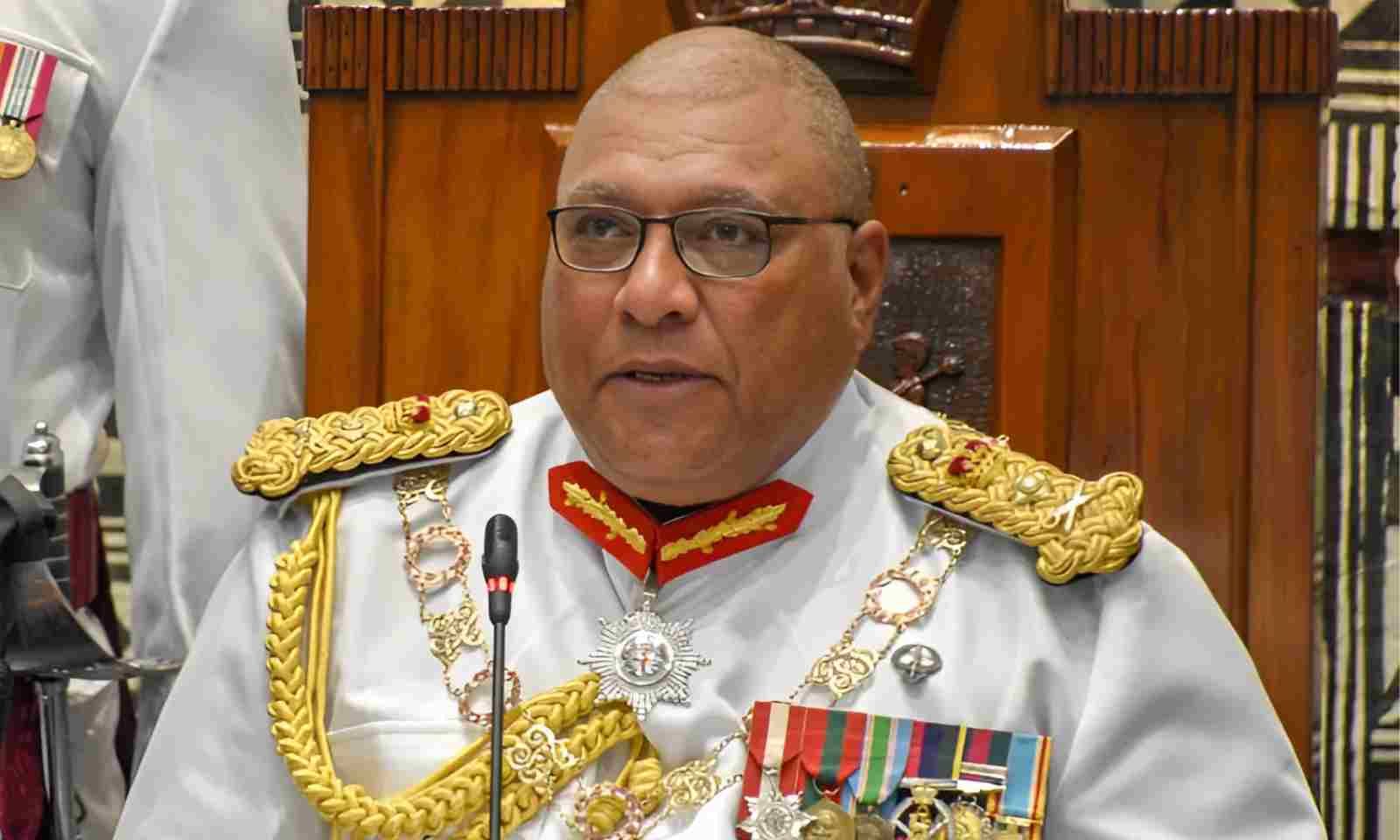
High chief and Tui Macuata Ratu Wiliame Katonivere did not seek a second term. Photo/Fiji Parliament
Ratu Wiliame has been Fiji's head of state since his appointment by former prime minister Frank Bainimarama in 2021.
In the past, the president was appointed by the government but this year, the appointment was taken to parliament for a vote on Thursday.
Ratu Naiqama was nominated by Prime Minister Sitiveni Rabuka, who is from the same province.
Fiji's civil society groups have condemned the election of the new president.
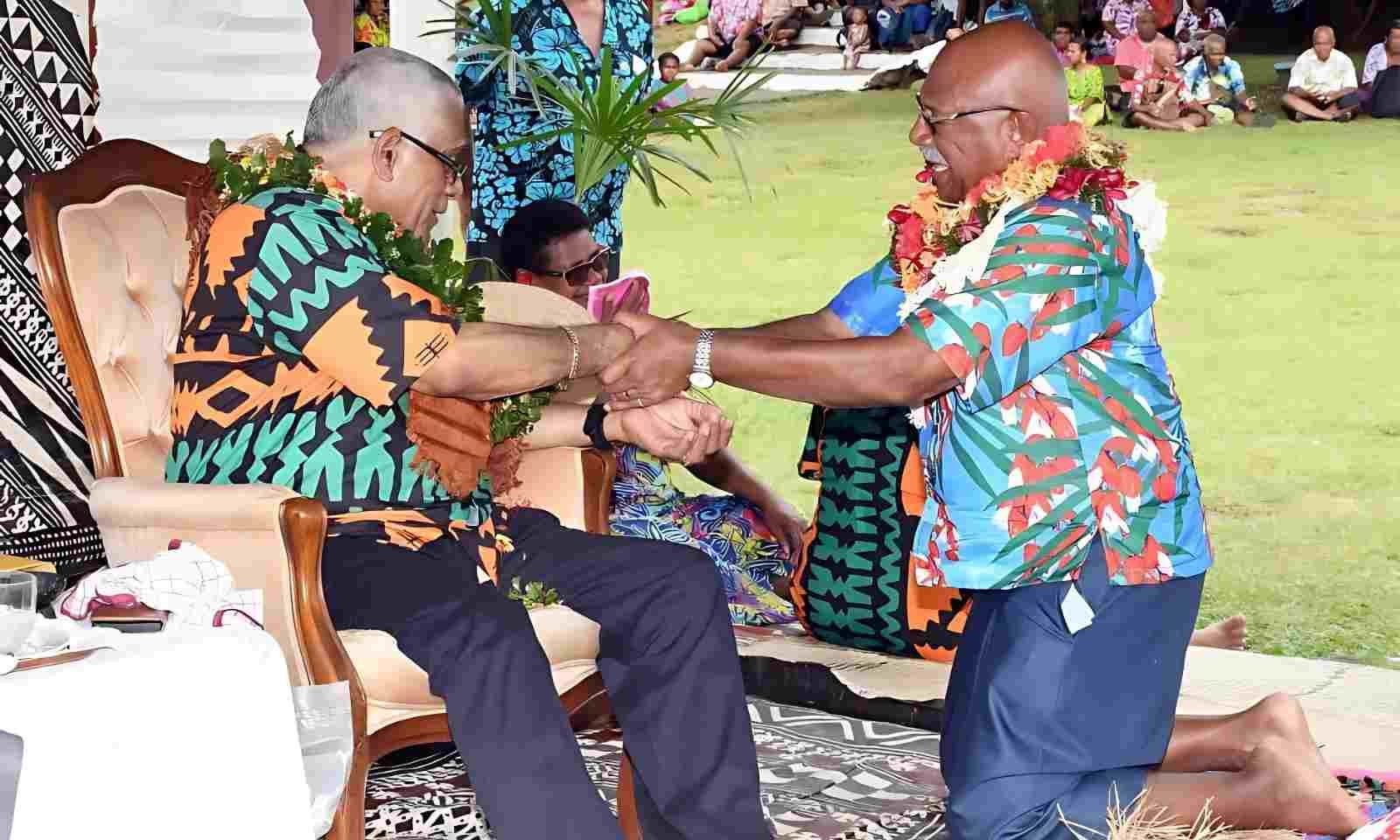
Fiji's Prime Minister Sitiveni Rabuka, right, congratulates his high chief Ratu Naiqama Lalabalavu during the traditional vakasenuqanuqa ceremony for the Turaga Na Tui Cakau on his appointment as Speaker. Photo/Fiji govt
Ratu Naiqama received 37 votes out of 55. He contested the 2022 general election for Rabuka's People's Alliance Party, receiving 652 votes.
Ratu Naiqama is not fit to be the president, Fiji Women's Crisis Centre coordinator Shamima Ali says.
"Ratu Naiqama has shown time and time again that he is a misogynist who was suspended from parliament for two years for making extremely derogatory comments against the late Speaker of the House, Dr Jiko Luveni," Ali said in a statement.
She also criticised Women's Minister, Lynda Tabuya, for endorsing Ratu Naiqama for the president's role. Tabuya had called him a "male champion".
"We would like the Minister for Women, Children, and Social Protection to explain instances - where and how - Ratu Naiqama has consistently worked as a male champion to break the cycle of patriarchy in the whole of Fiji," Ali said.
Ratu Naiqama has been under intense scrutiny from the country's human rights advocates for what they called "racially charged" and "evil" comments.
During a sitting of parliament in September, opposition MP Aliki Bia called out the "injustices that continue to derail the progress of some Melanesian communities" in Fiji.
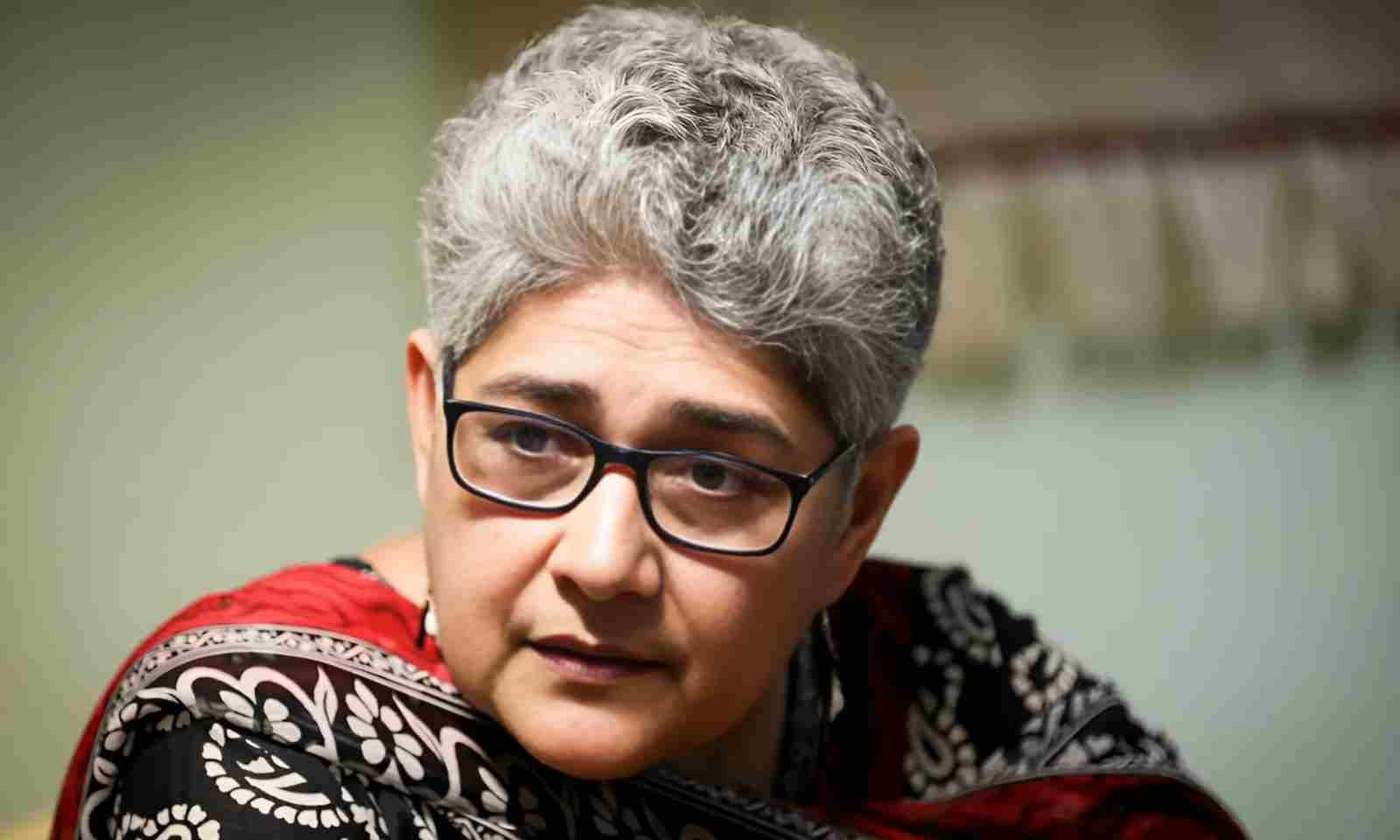
Fiji Women's Crisis Centre coordinator Shamima Ali says the new President has "shown time and time again that he is a misogynist". Photo/VNP/Daniela Maoate-Cox
In his address, Bia told parliament it was 160 years since the Melanesians arrived in Fiji.
Bia, a descendant of blackbirded Pacific Islanders, said they "sometimes consider ourselves as the forgotten group of people".
He told parliament that the descendants of the blackbirders were treated differently.
He said the leaders of some Melanesian communities in some maritime areas did not receive or were paid half of their allowances to carry out their duties, compared to other iTaukei village headmen.
"For 160 years, we continue to cry for justice. Writers and philosophers who wrote about our history have labelled us the landless people of Fiji."
But Ratu Naiqama, then the Speaker, warned Bia to be careful with his words, saying the descendants of blackbirded Pasifika were also registered in Fiji's register of native landowners.
"You have the audacity to come and say you are being ill-treated and mistreated, but you are part of us already.
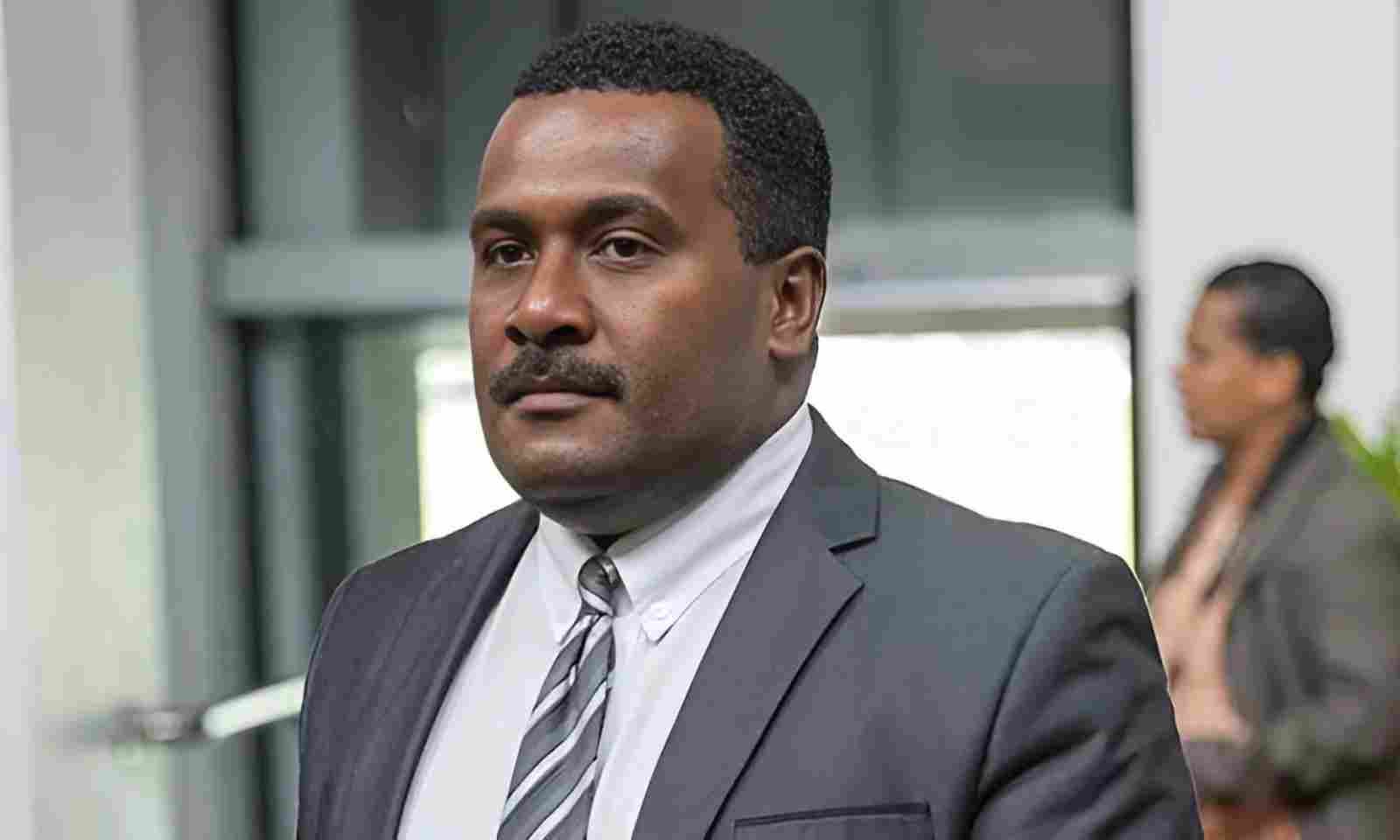
Opposition MP Aliki Bia, a descendant of the blackbirded Pacific Islanders, says they have been treated differently. Photo/Fiji Parliament
"You said you have been discriminated all this time and how come you are living amongst us?
"I am also wearing another traditional hat in this House, and I will not sit back and listen to hot air without that being fully proven with facts that you have been ill-treated all these years."
But the NGO Coalition on Human Rights (NGOHCR) said Ratu Naiqama's response was "unwarranted and racially charged".
"Such racially charged rhetoric undermines the principles of equality and inclusion that Fiji has strived to build since gaining independence and feeds into the systematic exclusion of the Melanesian community," the NGOHR said in a statement.
"Unfortunately, these attitudes reflect the barriers faced by many ethnic minorities in Fiji when they seek to highlight the injustices they experience.
They said discrimination can exist even when communities are granted the right to vote or share constitutional rights, and it is evident that differential treatment persists.
Ali said Ratu Naiqama's leadership did not belong in Fiji's evolving democracy.
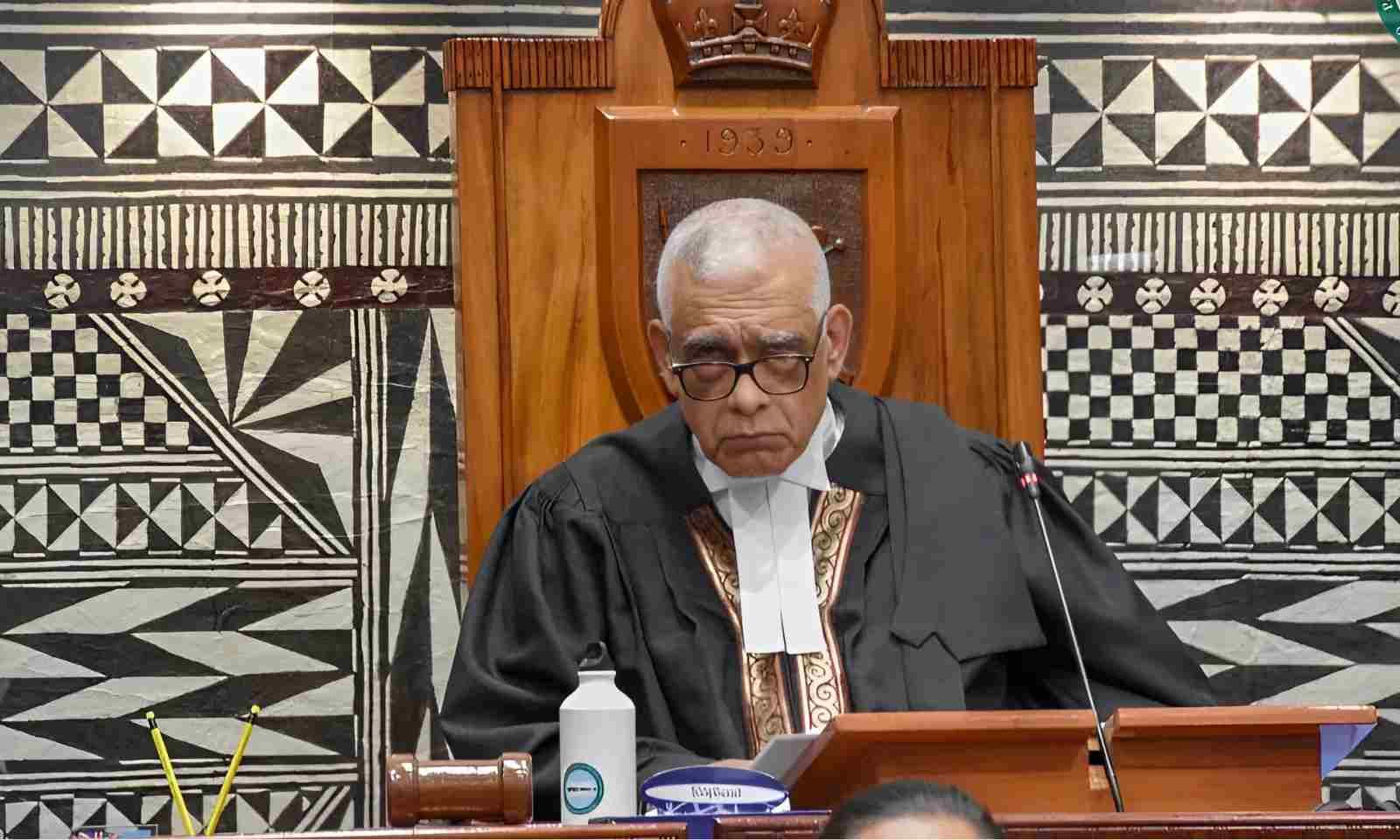
Controversy surrounds Speaker Ratu Naiqama Lalabalavu's election to be Fiji's next President. Photo/Fiji Parliament
"Fiji is still grappling with the legacy of slavery and racism and Ratu Naiqama has no right to minimise people's experiences," she said.
"At a time when the country is moving towards a Truth and Reconciliation process, Ratu Naiqama chose to be evil once again."
Rabuka said Ratu Naiqama was speaking as a major landowner and that Bia's concerns were related to "only a small group".
"Ratu Naiqama was speaking as a chief of a province where the Melanesians have been looked after very well as part of the province," Rabuka told a news conference.
He said Bia was stating that the Melanesians of Fiji have had a "very rough go".
The prime minister said Ratu Naiqama was "hurt" because he had "bent over backwards for Melanesians or what we called Indo-Fijians in his province of Cakaudrove".
Fiji's new Speaker is yet to be named.